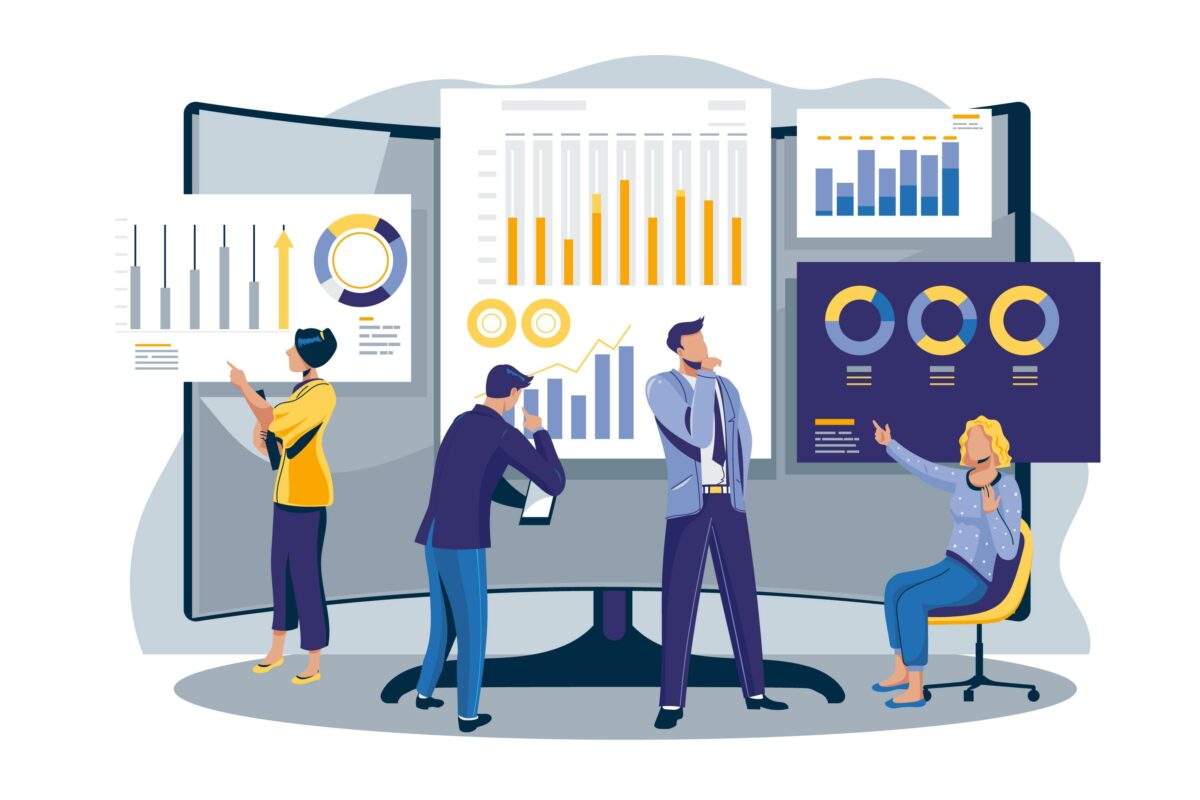Nowadays, being able to provide up-to-date information to users is essential for enterprises and organisations wanting to remain competitive in the quick-changing digital landscape. Salesforce, a premier CRM software, acknowledges this and provides an effective answer via Platform Events. With Platform Events, businesses and corporations can keep an eye on stock prices, monitor deliveries, and collaborate with remote teams in real-time.
Platform Events afford programmers a structure for assembling dynamic applications on the Salesforce platform. They allow customers to form, transmit and capitalise on events, making it practicable for data to be moved rapidly in real-time across various divisions of an organisation. In this article, we will aim to comprehend the concept of Platform Events and examine in greater depth how they can be employed to construct effective real-time applications.

What Are Platform Events?
Platform Events in Salesforce provide a communication platform that facilitates real-time exchanges between distinct pieces of an application. This messaging infrastructure adopts a publish-subscribe approach, where one element emits an event, and any autonomous segments can subscribe to that event to acquire notification. This decoupled construction makes it possible for programmers to create robust and adaptable applications.
Here are some key characteristics of Platform Events:
Asynchronous Communication
Platform Events are used to facilitate asynchronous interactions between distinct components of an application. Instead of having to await an instantaneous response after liberating a petition, a unit can publish an event and progress with its operations. This is especially useful when rapid updates are necessary, such as with real-time dashboards or notifications.
Decoupled Architecture
Platform Events decouple the sender and receiver of events. This means that the components producing events don’t need to know who or what will consume those events. Similarly, components subscribing to events don’t need to know where the events are coming from. This decoupling simplifies application design and maintenance.
Event-Driven Paradigm
Facilitated by an event-driven paradigm, Platform Events are well-suited for creating real-time applications. Events can be representative of a great array of occurrences, from external data changes to user activity. This versatility provides builders with the ability to construct applications that respond to changes in the world around them quickly.
Building Real-Time Applications with Platform Events : Salesforce
Now that we understand what Platform Events are, let’s explore how they can be used to develop real-time applications.
Real-Time Dashboards
One of the most common use cases for Platform Events is creating real-time dashboards. These dashboards can display critical business metrics, such as sales figures, customer support tickets, or website traffic, as they happen. By subscribing to relevant Platform Events, the dashboard components can update in real-time, providing decision-makers with up-to-the-minute information.
For example, a sales team can use Platform Events to track incoming leads and opportunities. When a new lead is generated, an event is published, and the sales dashboard updates to reflect this change. This allows sales reps to respond promptly to new leads, improving their conversion rates.
Instant Notifications
Platform Events are also an excellent tool for delivering instant notifications to users. Whether it’s notifying a customer service agent about a new support ticket or alerting a field service technician about an urgent service request, Platform Events ensure that the right people are informed in real-time.
By signing up for pertinent gatherings, users can be informed of such events through a variety of methods, such as emails, SMSs, or within-application notices. These messages can be tailored to provide greater clarity and pertinent data, permitting users to rapidly act upon essential situations.
Data Synchronisation
In distributed systems, data synchronisation is a common challenge. Platform Events can help maintain data consistency across different systems and applications by broadcasting events when data changes occur. Subscribers can then update their local data stores, accordingly, ensuring that everyone has access to the latest information.
For example, a company might use Salesforce app development to manage customer information and an external inventory management system to track product availability. When a product’s stock level changes in the inventory system, it can publish an event that Salesforce subscribes to. Salesforce can then update its records to reflect the current stock status, ensuring that sales teams have accurate information when interacting with customers.

IoT Integration
The Internet of Things (IoT) is all about connecting devices and sensors to the internet to collect and exchange data. Platform Events can play a crucial role in integrating IoT data into Salesforce and other business systems. IoT devices can publish events to indicate changes in sensor readings, equipment status, or environmental conditions.
For instance, a smart building management system can use Platform Events to notify maintenance teams when a temperature sensor detects an anomaly. This proactive approach allows issues to be addressed before they escalate, improving operational efficiency and reducing downtime.
Collaborative Workflows
Real-time collaboration is essential for remote teams and distributed organisations. Platform Events can facilitate collaborative workflows by keeping team members updated on project progress and task assignments. Events can be triggered when tasks are assigned, completed, or delayed, ensuring that everyone is on the same page.
Implementing Platform Events in Salesforce
To implement Platform Events in Salesforce, you’ll need to follow these steps:
Define the Event Schema: Start by defining the schema for your Platform Event. This schema determines the structure of the event and the data it can carry.
Create the Platform Event: Use Salesforce’s setup tools to create the Platform Event object based on the schema you defined. This object will store the events and serve as the source of truth for event data.
Publish Events: To publish events, use Apex triggers or processes that run when specific conditions are met. These triggers or processes can be associated with standard objects, custom objects, or external systems.
Subscribe to Events: Subscribing to events is done through Salesforce triggers or external applications using Salesforce APIs. Subscribers can specify the events they want to receive and define the actions to take when events occur.
Handle Events: Once an event is received, the subscriber can process it, update records, trigger workflows, or send notifications, depending on the application’s requirements.
Monitoring and Analytics: Salesforce provides monitoring tools and analytics to track event usage, troubleshoot issues, and gain insights into how events are impacting your application’s performance.
Best Practices for Platform Event Development
When developing real-time applications with Platform Events, consider the following best practices:
Design for Scalability: Ensure that your event-driven architecture can scale to handle a large volume of events. Use batching and asynchronous processing where appropriate.
Error Handling: Implement robust error-handling mechanisms to deal with scenarios where events fail to publish or subscribe.
Event Versioning: Plan for event schema changes by versioning your events. This ensures backward compatibility when you need to make updates.
Security and Access Control: Apply proper security measures to restrict access to events and ensure that only authorised users and systems can publish and subscribe.
Logging and Monitoring: Implement comprehensive logging and monitoring to track event flows, troubleshoot issues, and proactively address performance bottlenecks.
Testing: Thoroughly test your event-driven application to validate that events are published and received correctly, and that the application behaves as expected under various conditions.
Documentation: Maintain clear documentation of your event schemas, publishing logic, and subscriber expectations to facilitate collaboration among developers and teams.
Conclusion
Platform Events in Salesforce offer a powerful solution for developing real-time applications that can respond to changes in data and user interactions instantaneously. Whether you’re building real-time dashboards, enabling instant notifications, synchronising data across systems, integrating IoT devices, or facilitating collaborative workflows, Platform Events provide the foundation for scalable, efficient, and responsive applications.
What makes QSS Technosoft Inc stand out as the perfect Salesforce partner?
At QSS Technosoft Inc, we are aware that Salesforce is a potent mechanism to furnish you with context related to customer service, raise sales, refine productivity, and more. This is why we have assembled a squad of veteran developers devoted to providing the top solutions for your activity.
We specialise in customising Salesforce to accommodate your personal requirements and we can supply you with customised support at every stage of the way. Our loyalty to customer fulfilment guarantees that we are constantly conversant with the state-of-the-art Salesforce technologies, granting you an advantage over your contenders.
Utilising our mastery and assistance, you will be able to maximise your return on investment rapidly. Give QSS Technosoft Inc the opportunity to unlock the potential of Salesforce with specifically engineered solutions and profound service.
We are proud to mention that our work has been recognized by leading B2B reviews and research platforms like GoodFirms, Clutch, MirrorView, and many more.


Salesforce : Developing Real Time Applications with Platform Events